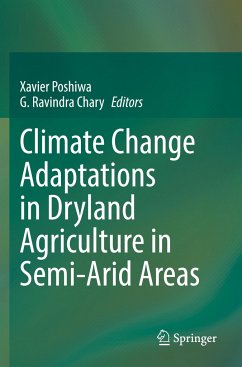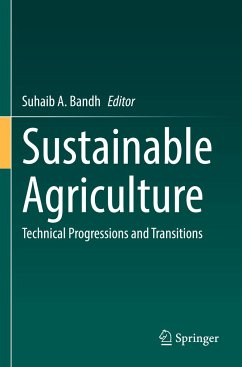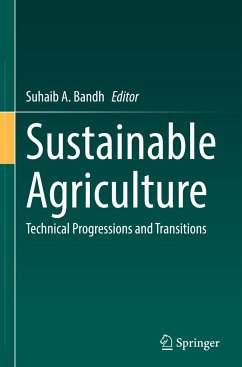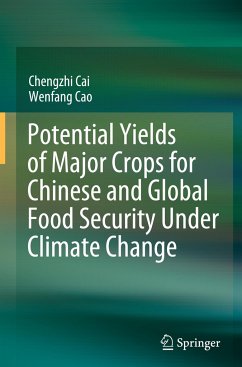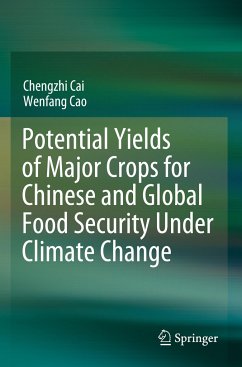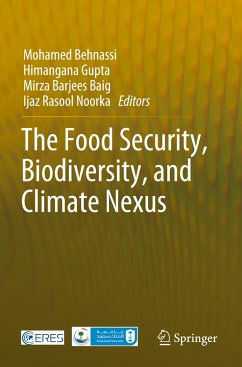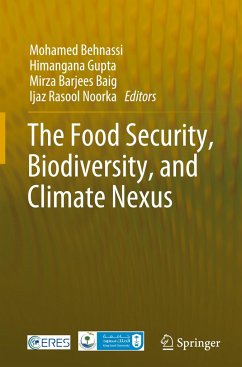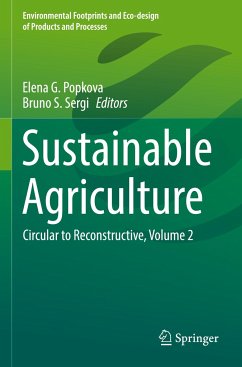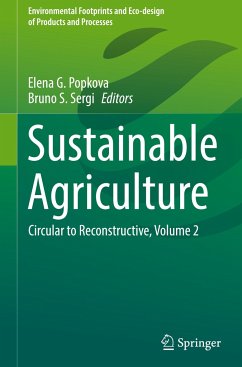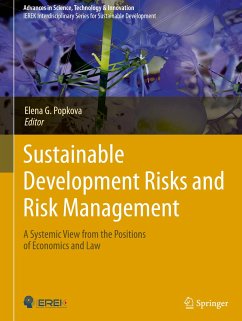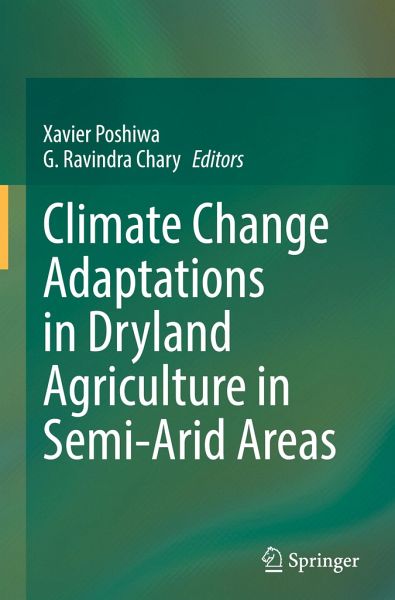
Climate Change Adaptations in Dryland Agriculture in Semi-Arid Areas

PAYBACK Punkte
57 °P sammeln!
This book highlights the approaches for achieving trans-disciplinary research integration for "semi-arid dryland agriculture systems" under changing climates, while also identifying the elements of a collaborative research agenda that are needed to advance global food security. The book emphasizes climate change being a reality and how drylands are bearing the brunt in diverse ways. The major impact of dryland agriculture is on communities that need to: avoid the short- and long-term impacts of the changing climate; adapt strategies that can minimize these impacts; and be able to mitigate clim...
This book highlights the approaches for achieving trans-disciplinary research integration for "semi-arid dryland agriculture systems" under changing climates, while also identifying the elements of a collaborative research agenda that are needed to advance global food security. The book emphasizes climate change being a reality and how drylands are bearing the brunt in diverse ways. The major impact of dryland agriculture is on communities that need to: avoid the short- and long-term impacts of the changing climate; adapt strategies that can minimize these impacts; and be able to mitigate climate change, for which they need climate smart interventions. These interventions are only realized through knowledge and experience sharing among stakeholders from different sectors and backgrounds. It is in this context that the publication was seen as a necessity in order to bring together ideas that will transform lives and build adaptation capacities, thereby providing the much-needed productsin communities leading to development



